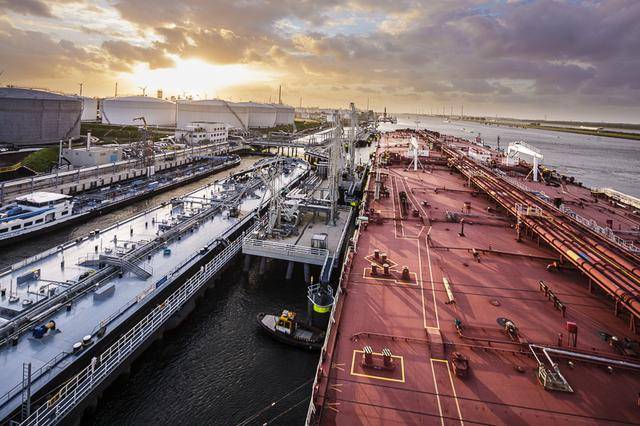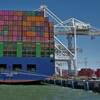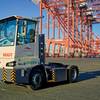The Port of Rotterdam reported a 5.4 percent increase in the amount of goods handled by the port for the first nine months of 2015, boosted largely by higher volumes of crude oil and oil product cargos.
"The growth is almost entirely due to the increase in the handling of crude oil and oil products,” explained Allard Castelein, CEO Port of Rotterdam Authority. “Most other types of goods were handled in similar quantities as last year. Since oil represents about half of the throughput, the port achieved a good growth rate.”
Liquid Bulk
The port’s crude oil throughput was up 8.5 percent over the nine-month period, primarily due to the low price of oil, which ensures good margins as a result of which refineries are processing more crude oil than last year. This applies not only to the five refineries in Rotterdam and the five in Germany, Antwerp and Vlissingen, which are supplied from Rotterdam, but also those in Russia. Especially the latter produce a relatively large amount of fuel oil which is shipped to the Far East via Rotterdam. This is the main reason that the handling of oil products increased by 22.1 percent, according to the port.
Meanwhile, Rotterdam’s LNG throughput almost doubled, as Asian gas prices have dropped to levels now comparable to those in Europe, further increasing supply there. The port noted “in absolute terms” that LNG handling volume remains limited, however.
Other liquid bulk decreased by 1.2 percent, while 12.5 percent more liquid bulk was handled in total.
Dry Bulk
Dry bulk showed a slight downward trend across the board, the port reported. The handling of agri bulk fell by 11.7 percent as good European harvests lead to less demand for imports. Coal throughput remained at the same level. Ores and scrap fell 2 percent; according to the port, German steel production has not yet increased and Europe imports steel from China via southern European ports.
“Dry bulk is usually a fairly stable industry, but currently the handling of iron ore and agri bulk is lagging behind somewhat,” Castelein said.
In total, the Port of Rotterdam handled 3.1 percent less dry bulk over the nine-month period.
Containers and Breakbulk
In terms of TEU, container handling in the first nine months was 1 percent higher than last year, though handled volume was virtually the same (+0.2 percent) in terms of tonnage. According to the port, this is due to lower Chinese exports which have slowed the growth of emerging economies such as Brazil, as well as a deteriorating Russian economy which reduces the throughput of containers (short sea and feeder traffic) to this region.
“In the container sector, growth opportunities are currently still limited because the new terminals are not yet operating at full speed," Castelein said.
New terminals on Maasvlakte 2 are not yet operating at sufficient speed to handle large volumes, and container terminals on Maasvlakte 1 have a high occupancy rate.
Within the container sector, it is mainly the short sea traffic to the British Isles that increased due to a strong U.K. economy. This, combined with strikes by ferry companies in Calais and problems with the Channel Tunnel, is also the reason that roll on/roll off traffic across the North Sea has increased by 11.4 percent. Other break bulk, meanwhile, decreased 7.6 percent. Combined, breakbulk (roll on/roll off and other breakbulk) was up by a total of 6.9 percent.

















